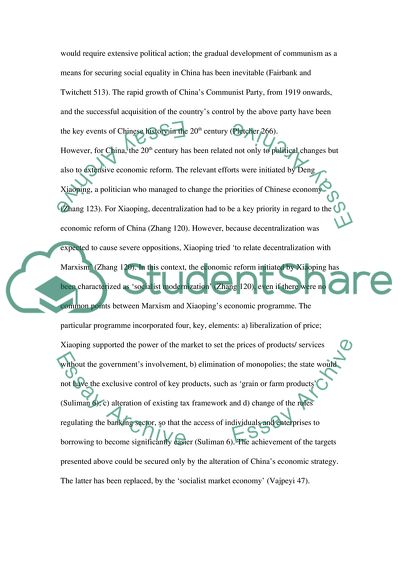Cite this document
(The Transformation of China into a Global Power Assignment Example | Topics and Well Written Essays - 1750 words, n.d.)
The Transformation of China into a Global Power Assignment Example | Topics and Well Written Essays - 1750 words. https://studentshare.org/history/1818519-should-we-welcome-or-fear-the-rise-of-china-in-the-21st-century
The Transformation of China into a Global Power Assignment Example | Topics and Well Written Essays - 1750 words. https://studentshare.org/history/1818519-should-we-welcome-or-fear-the-rise-of-china-in-the-21st-century
(The Transformation of China into a Global Power Assignment Example | Topics and Well Written Essays - 1750 Words)
The Transformation of China into a Global Power Assignment Example | Topics and Well Written Essays - 1750 Words. https://studentshare.org/history/1818519-should-we-welcome-or-fear-the-rise-of-china-in-the-21st-century.
The Transformation of China into a Global Power Assignment Example | Topics and Well Written Essays - 1750 Words. https://studentshare.org/history/1818519-should-we-welcome-or-fear-the-rise-of-china-in-the-21st-century.
“The Transformation of China into a Global Power Assignment Example | Topics and Well Written Essays - 1750 Words”. https://studentshare.org/history/1818519-should-we-welcome-or-fear-the-rise-of-china-in-the-21st-century.


